Acne is not just a problem for teens.
It affects more than 40 million people — and over half of those people are women older than age 25.
More than 4 out of 5 people between ages 12 and 24 develop acne at least once in their life.
Although acne is sometimes viewed as a superficial health concern, those of us who’ve had it know breakouts can cause permanent damage — physical and emotional — not to mention skin scarring and discoloration.
As a child, I experienced atopic and contact dermatitis, along with seasonal allergies. This ultimately put me on the path to become a naturopathic physician. I’ve always had an insider understanding of the challenges, discomfort, side effects from conventional treatments, and embarrassment of skin problems – including acne.
There is good news about acne. You can address the root causes behind skin issues, including nutritional deficiencies, microbiome issues, and hormonal imbalances. At the same time, you’ll improve your health in many other ways.
What Is Acne?
Acne is known as an inflammatory disease of the sebaceous glands and hair follicles of the skin, and, is marked by the eruption of pimples or pustules that can appear on the back, chest, arms, and commonly on the face.
An increase in oil secretions may build up beneath a blocked pore, allowing bacteria, including Propionibacterium acne (P. Acne), to proliferate. Conventional approaches to treating acne have a host of shortcomings, so it’s no surprise many people who use common medications are left feeling fed-up and helpless after trying them and not seeing results.
One of the main triggers for acne is hormones, and that’s why we often see acne breakouts during puberty, starting/stopping birth control pills, and around menopause.
But have you noticed acne flare-ups when you’re stressed or when you eat the wrong foods? Did you know that can be hormonally related as well?
Hormonal imbalances are one of the most complex but also common connections with acne. Surprisingly, they’re often overlooked or treated separately.
Here are the 3 hormones that are most connected to acne breakouts:
1. Androgens
In excess, androgens cause an increase in sebum which provokes acne breakouts. Androgens are made in the gonads and adrenal glands (in both men and women), and they also can be made locally in the sebaceous glands. Your body may be making these in excess and leading to acne.
For example, age-related hormonal changes, such as those experienced during puberty and menopause, may affect testosterone (an androgen), leading to oily or breakout-prone skin.
Furthermore, taking/using testosterone and DHEA increases the size and secretion of sebaceous glands, so if your doctor has prescribed these for you and you have acne, be sure to check with him or her to ensure you’re on the correct treatment regime.
On the other hand, low androgens can lead to thinning and dry skin as well as loss of muscle in the face, contributing to sagging skin.
2. Cortisol
High cortisol leads to more sebum production and inflammation which, again, triggers acne. When we’re stressed, cortisol goes up and that leads to this cascade. Cortisol is great to help us respond to stressful situations or get us going in the morning, but cortisol levels should taper off as the day progresses so we can relax and fall asleep at bedtime.
If we continue to be stressed without relief, then our adrenal glands that release cortisol get tired or confused and don’t work normally. That’s one of the ways we end up with high cortisol. As we age, we tend to have higher cortisol as well.
When you address cortisol imbalances, you will be grateful for how well you feel and for the results they see on your skin.
3. Insulin
High insulin has been shown to stimulate sebum production and androgen activity. When we get excess amounts of sugar in our diet or have high blood sugar levels, our insulin kicks in, which can lead to the acne cascade.
Sugar, in some form or fashion, will alter your blood sugar levels. Anytime you eat a food high in sugar, your blood sugar rises rapidly, and then falls shortly after insulin is released into your cells. This creates a huge drop in blood sugar that can make you shaky, hungry, and moody. Anytime this happens, your body creates internal stress, which can also lead to breakouts.
What do we do about hormonal acne?
1. Heal the gut
It may seem strange to talk about the digestive tract when we’re discussing hormones, but the gut microbiome (the balance of micro-organisms like the good bacteria found in yogurt cultures) plays a role in balancing hormones.
Research indicates addressing the gut microbiome is important in addressing acne, and probiotics can help restore healthy gut flora and help balance hormones. I recommend Microbiome Builder – A dairy-free bacteriophage/probiotic combination formula to my patients.
2. Manage stress
Stress, especially in combination with digestive and gut microbiome imbalances and poor diet, triggers inflammation, oxidative damage, and high cortisol. None of this is good for the skin. Whether it’s a warm bath with a few drops of lavender essential oil, restorative yoga classes, listening to soothing music, a stroll through nature or some other way to calm your mind and soul, pick one to do every day.
3. Improve detoxification
One of our liver’s jobs is metabolizing hormones, and when our detoxification pathways are suboptimal, we can end up with imbalances in hormones and their metabolites. A well-designed cleanse program can enhance liver detoxification.
The amino acid glutathione (also a potent antioxidant) is lower in the skin of acne patients compared to people without acne. Certain nutrients such as N-Acetyl Cysteine and Vitamin C can boost glutathione and support detoxification. (These are also found in my 14-day all-in-one cleanse).
4. Balance hormones naturally
Chasteberry, or vitex, can be helpful for women when hormonal imbalance is the underlying trigger for skin problems. It is reported to have hormonal effects similar to progesterone in the body, and research shows it can relieve acne symptoms.
For men or women with excess testosterone, the supplement Saw Palmetto may help curb the excess. Hormones can be confusing, so if yours are out of balance, it’s best to work with a naturopathic physician or functional medicine doctor who really knows how to balance hormones naturally.
5. Reduce sugar
When you reduce your sugar intake, it’s easier to manage your blood sugar and insulin levels. Sugar is hidden in many foods, so in addition to avoiding sugary treats and sodas, read ingredient labels for sugar in popular packaged foods like breads, crackers, juice, smoothies, dressings, and condiments. And, remember, many other foods turn into sugar in the body like breads, pastas, and other high carbohydrate foods.
In addition to reducing sugar, be sure to eat plenty of fiber, protein, and healthy fats at your meals to prevent the spikes and crashes. If your blood sugar runs high or you’re not sure, talk with your doctor to have your levels tested.
6. Update your skincare routine
Externally, we can prevent and treat acne by ensuring a regular skincare routine with mildly acidic skincare products and by creating a healthy skin microbiome with the right regimen to prevent the overgrowth of P. Acne bacteria.
The messages skin provides can help us know we’re heading in the right direction – or if we are still imbalanced. Whether it’s acne clearing up or eruptions disappearing, the skin will reveal if you are making progress with hormonal balance.
The Spa Dr.® Approach
At The Spa Dr.®, our approach is to help shine the light on skin and health care information and offer our guidance to support you on your journey.
We’re offering a free 9-part documentary series – Hormones, Health & Harmony to help you balance your hormones and restore radiance. Register HERE.
My next book, Natural Beauty Reset, provides an in-depth look at how you can nourish your body and support your health and hormones through the seasons. You can pre-order my book now on Amazon.
The Spa Dr.® offers natural skin care products that are safe and free from chemicals and toxins that can harm your skin and health. Our products are formulated to contain key nutrients in their pure and active form in order to provide optimal results. In addition, our products are pH balanced towards mild acidity to promote and protect a healthy skin microbiome.
If you are not already part of The Spa Dr.® community, please opt-in to receive our newsletter and join us on social media.
Share this article with your friends and spread the word to promote harmonized hormones and natural beauty!
*These statements have not been evaluated by the Food and Drug Administration. These products are not intended to diagnose, treat, cure or prevent any disease.
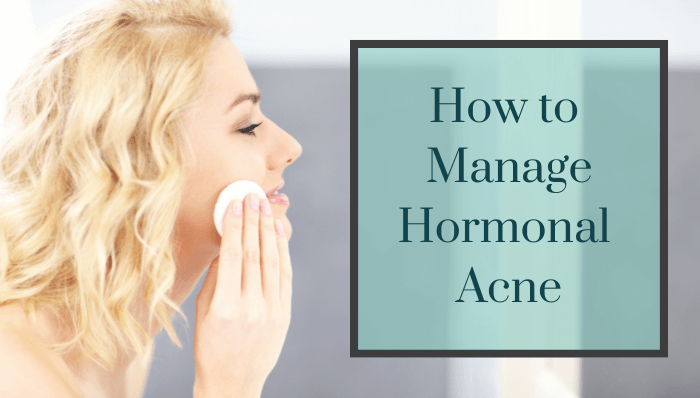
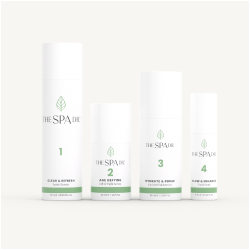
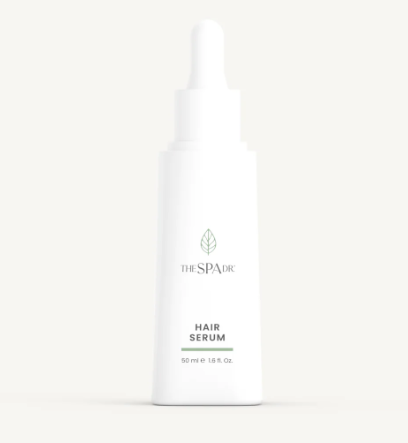
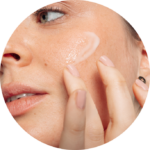

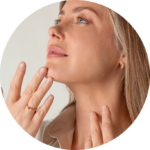

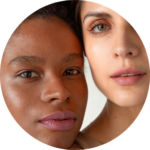
Reader Interactions